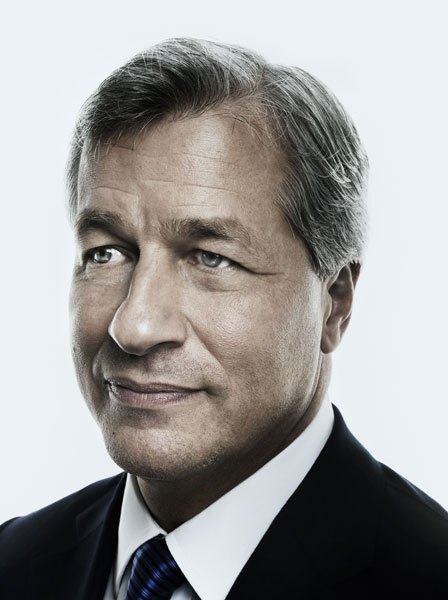
Jamie Dimon and the bank he heads, JPMorgan Chase (which now includes Washington Mutual and Bear Stearns), tower over the financial and political landscape. Their ascent shows the power but also the grave limits of relying upon self-interest and unregulated markets as substitutes for ethics or regulation.
Dimon, 55, had the wisdom and the long view to prevent his employees from succumbing to the insane greed that enriched so many bankers while destroying their firms, not to mention ruining millions of lives. As a result, JPMorgan caused far less damage during the financial crisis and emerged more powerful than ever, while Bear Stearns, Lehman Brothers, AIG, Countrywide and WaMu collapsed. For this, Dimon deserves enormous credit.
But at the same time, JPMorgan has had its share of scandal, and Dimon opposes regulation of financial-sector pay, reform of the rating agencies, tighter regulation, greater transparency of derivatives (JPMorgan and four others control 95% of the global market) and, obviously, any move to break up the largest banks. Which means that if in 10 years we have another crisis, Dimon will have to share the blame as one of its architects.
Ferguson directed the Oscar-winning documentary Inside Job